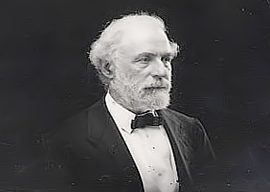
April 14, 2011

Robert E. Lee
Robert E. Lee was a very elegant, good-looking gentleman of the old school—six feet tall and an aristocrat whose father had been a general during the Revolutionary War and later became governor of Virginia. Lincoln had asked him to lead the Union forces, something Lee could never have done as he was brought up as a Virginian, not an American. His only weakness, if it constituted one, was his habit of suggesting, rather than ordering, his generals. The Southern boys fought in defense of their homeland, while the Northerners fought for an idea (the Union), which meant the South had the advantage when it came down to a corps-à-corps fight.
The most important thing I learned when I was in school some 150 years ago was that the secession by the South did not constitute rebellion, and two rather learned men agreed with that: Alexis de Tocqueville and a certain Thomas Jefferson. Lincoln and big business, along with Northern newspapers and so-called intellectuals called it a rebellion, which meant the war was over the constitutionality of the South’s secession. So the South’s gallant young men became Johnny Rebs and this is how modern history gets written.
The South had a chance to tie before Sherman burned Atlanta to the ground. The defending general Joseph Johnston’s strategy was to concede ground but keep his fighting order and his troops intact. He would only engage the enemy from a strong defensive position. But the president of the Confederacy, Jefferson Davis, dismissed Johnston out of the blue, and Sherman got to Atlanta. There are those who believe that the North would have thrown in the towel if the war had been prolonged. Certainly Lincoln would not have been reelected had Atlanta not fallen. Grant was stuck in Virginia and the Battle of the Wilderness had broken the North’s spirit.
At Appomattox, Lee wore his elegant parade uniform with golden sash, whereas Grant arrived in a field uniform with an unbuttoned collar and looking rather shabby. Grant was short and a drunk. But he proved to also be a great man by being magnanimous in victory and declaring that the Confederacy became American the moment the paper of surrender was signed—unlike the midgets who pursued the Germans following the First World War. Robert E. Lee forever!